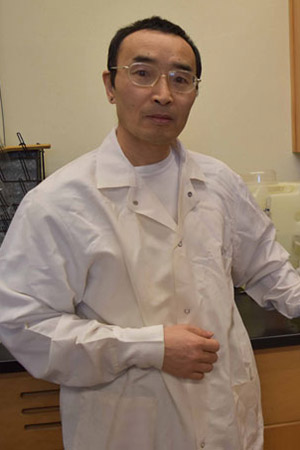Residents in the East Liverpool area can have water samples tested for free, thanks to a research project being conducted by Qunxing Ding, associate professor of biology at 91œ„Ω∂ ”∆µ University at East Liverpool.
Ding is seeking water samples from areas within city limits, as well as from surrounding communities, for an independent study on water quality. He intends to geographically map samples to determine if there are any correlations with location and water quality.
“Water content in the human body is about 65 percent and may be more than 70 percent in children," he explains. "All the metabolic processes, including digestion, talking and thinking, need water. “Drinking enough water is very important to human health, and drinking clean water is crucial.”
Ding says he became interested in water quality in this area because of its history of manufacturing and industry.
“Manufacturing practices from decades ago can still have an impact on the water we use today,” he says.
Accumulated data can then be summarized for possible future grant funding to expand the study. Assisting is Haiyan Zhu, also an associate professor of biology on the East Liverpool Campus.
Water samples can be taken from taps in homes or from nearby wells, ponds, lakes, streams and rivers.
To have water samples tested, Ding offered the following instructions:
- Use a clean, empty, plastic water bottle.
- Using water intended for testing, rinse the bottle and empty it.
- Repeat.
- Fill the bottle with water to be tested (at least two ounces).
- Securely place cap on bottle.
- Mark the bottle with an identifying name, number or letter.
- Note the water source, including its address/location and the date it was retrieved.
- Take the bottle of water to the reception desk in Purinton Hall on the 91œ„Ω∂ ”∆µ East Liverpool Campus, 400 E. Fourth St.
- Provide an email or mailing address to receive test results.
- Each water source must be in a separate bottle (prepared per the above instructions).

